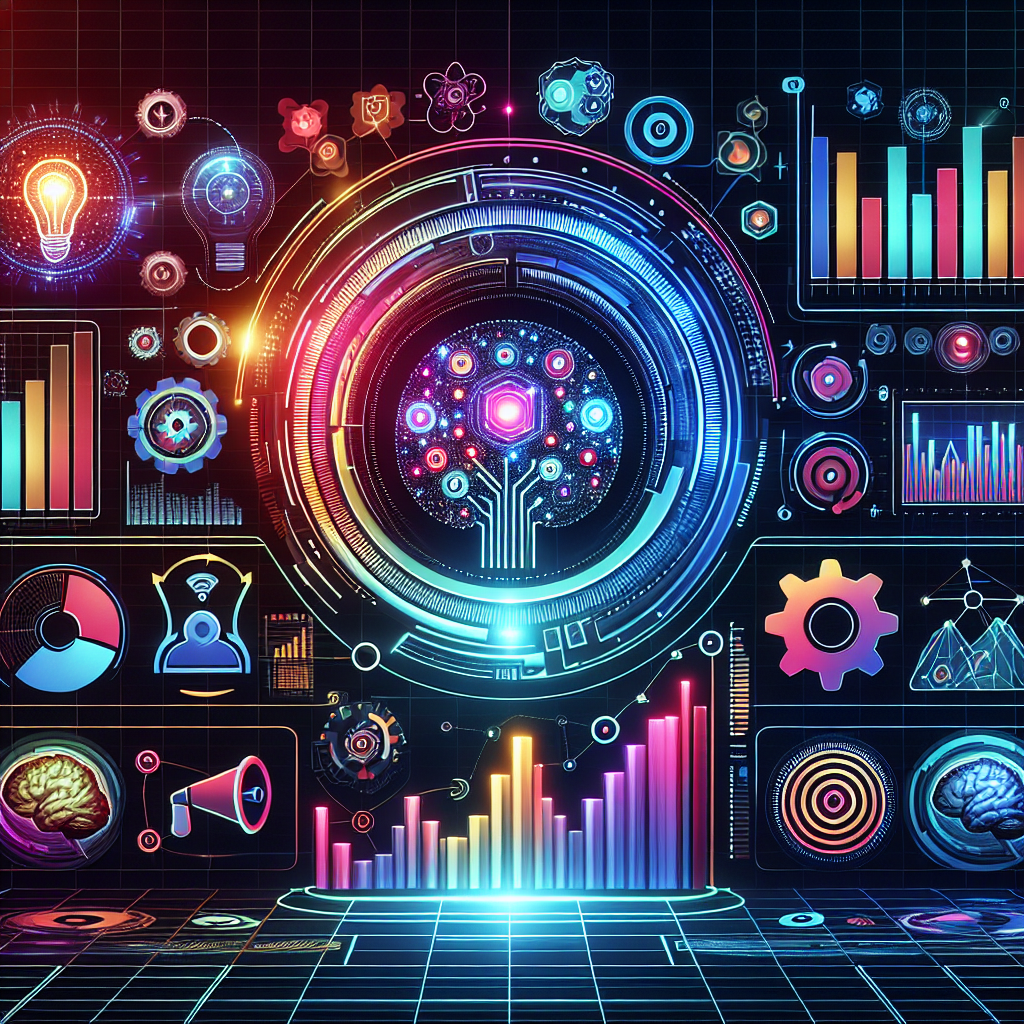In today’s digital age, businesses are constantly looking for ways to stay ahead of the competition and reach their target audience more effectively. One way they are doing this is through the use of predictive analytics, which uses data and algorithms to forecast future trends and behaviors. And with the rise of artificial intelligence (AI), predictive analytics has become even more powerful and accurate.
AI is playing a crucial role in predictive analytics for marketing by enabling businesses to analyze vast amounts of data quickly and efficiently. By using machine learning algorithms, AI can identify patterns and trends in data that human analysts may not be able to see. This allows businesses to make more informed decisions and tailor their marketing strategies to better meet the needs of their customers.
One of the key benefits of using AI in predictive analytics for marketing is the ability to personalize marketing campaigns. By analyzing customer data, AI can predict which products or services a customer is likely to be interested in, allowing businesses to target their advertising efforts more effectively. This not only helps businesses increase their sales but also improves the overall customer experience by showing customers relevant and engaging content.
AI also helps businesses optimize their marketing efforts by identifying the most effective channels and messaging strategies. By analyzing data from various sources, AI can determine which marketing channels are generating the most engagement and which messages are resonating with customers. This allows businesses to allocate their marketing budget more efficiently and create campaigns that are more likely to be successful.
Furthermore, AI can help businesses identify potential customers who are most likely to convert. By analyzing data on customer behavior and demographics, AI can predict which individuals are most likely to make a purchase or take a specific action. This allows businesses to target their marketing efforts towards these high-value customers, increasing their chances of success.
In addition to improving marketing strategies, AI can also help businesses streamline their operations and improve efficiency. By automating tasks such as data collection, analysis, and reporting, AI can free up valuable time for marketers to focus on strategy and creative tasks. This not only saves businesses time and money but also allows them to make more data-driven decisions that lead to better results.
Overall, the role of AI in predictive analytics for marketing is crucial for businesses looking to stay competitive in today’s fast-paced market. By harnessing the power of AI, businesses can gain valuable insights into customer behavior, optimize their marketing strategies, and improve their overall efficiency.
FAQs:
Q: How does AI improve predictive analytics for marketing?
A: AI improves predictive analytics for marketing by using machine learning algorithms to analyze vast amounts of data quickly and efficiently. This allows businesses to identify patterns and trends in data that may not be visible to human analysts, leading to more accurate predictions and better-informed decisions.
Q: What are the benefits of using AI in predictive analytics for marketing?
A: Some of the benefits of using AI in predictive analytics for marketing include personalized marketing campaigns, optimized marketing efforts, and improved efficiency. AI can help businesses target their advertising efforts more effectively, allocate their marketing budget more efficiently, and automate tasks to save time and money.
Q: How can businesses implement AI in their predictive analytics for marketing strategies?
A: Businesses can implement AI in their predictive analytics for marketing strategies by investing in AI-powered software or hiring data scientists with expertise in machine learning. By collecting and analyzing data from various sources, businesses can use AI to improve their marketing strategies and drive better results.

